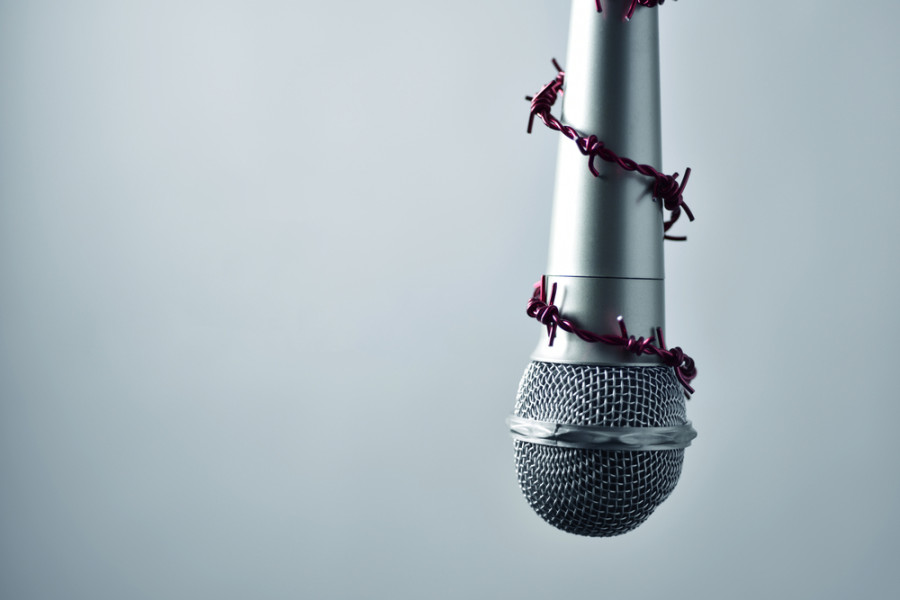Editorial
Nepal’s government should check itself before it wrecks itself
The longer society accepts the arrest of artists, the more authoritarian the government could become.
The Nepal Police has once again jolted the people awake, reminding everyone to remain vigilant against an administration that’s increasingly showing authoritarian tendencies. The case this time—another in a series of attacks on freedom of expression and the right to free speech—revolves around the arrest of musical artists Durgesh Thapa and Samir Ghising, for supposedly spreading messages that go against ‘Nepali values’ through their music.
In a democratic country—especially one with such a diverse population where some espouse marijuana usage as cultural and religious and others home-brewed liquor as integral parts of their rituals—it is hard to comprehend just whose values the authorities were referring to. More importantly, any hurt societal values notwithstanding, the constitutionally guaranteed rights to free speech and expression should be enough to deride the police’s recent actions. The government and its security apparatus have been making undemocratic moves ever since it came to power, more brazenly each time. The arrest of Ghising, who has been remanded in custody for seven days, is wrong. The current regime needs to check itself before it wrecks itself.
This is not the first illiberal behaviour on the police’s part nor of the government that supports and promotes such actions. There have been numerous accounts of the police using excessive force on peaceful protestors and even detaining voices that are critical of the government, such as Gyanendra Shahi. In a recent report, the National Human Rights Commission concluded that the Nepal Police extrajudicially killed Kumar Paudel, a member of the Netra Bikram Chand-led Communist Party of Nepal.
Alarm bells had already begun to ring when Pashupati Sharma, in February, was threatened by the ruling party’s youth wing to remove his song Lootna sakey loot kancha for being ‘too critical of the government’. Then, in June, the police arrested comedian Pranesh Gautam after a complaint was filed against his satirical YouTube video. Gautam’s case received support because although filmmakers were behind the complaint that got him arrested, the police misused the Electronic Transaction Act to turn it into a criminal case, when separate laws for libel and defamation exist.
In Thapa’s and Ghising’s cases, law enforcement arrested them even before a complaint was filed, reportedly after coming across their songs on social media. This is even more astonishing and worrying. The public has every right to file a complaint, no matter how frivolous and irresponsible, if they believe something is criminal. It is then up to the legal system to judge whether the complaint holds any merit. However, in a democratic system, the state apparatus does not have any right—whatsoever—to attempt to enforce a code of morality.
It would serve the government well to actually do the job they were elected to do, which is to implement federalism and strengthen democratic institutions. The police, which calls itself the citizens’ friend, would do better to keep Nepalis safe by going after criminals, instead of finding boogeymen in popular music.
The government’s recent illiberal actions have the potential to set a trend, something that should worry the public. When all people protesting against the government are locked up, and when all music artists are forced to change their lyrics to suit the government’s narrative, the next person they might come after is you—for so small a thing as criticising the government in a civil conversation.
***
What do you think?
Dear reader, we’d like to hear from you. We regularly publish letters to the editor on contemporary issues or direct responses to something the Post has recently published. Please send your letters to [email protected] with "Letter to the Editor" in the subject line. Please include your name, location, and a contact address so one of our editors can reach out to you.




 9.7°C Kathmandu
9.7°C Kathmandu














